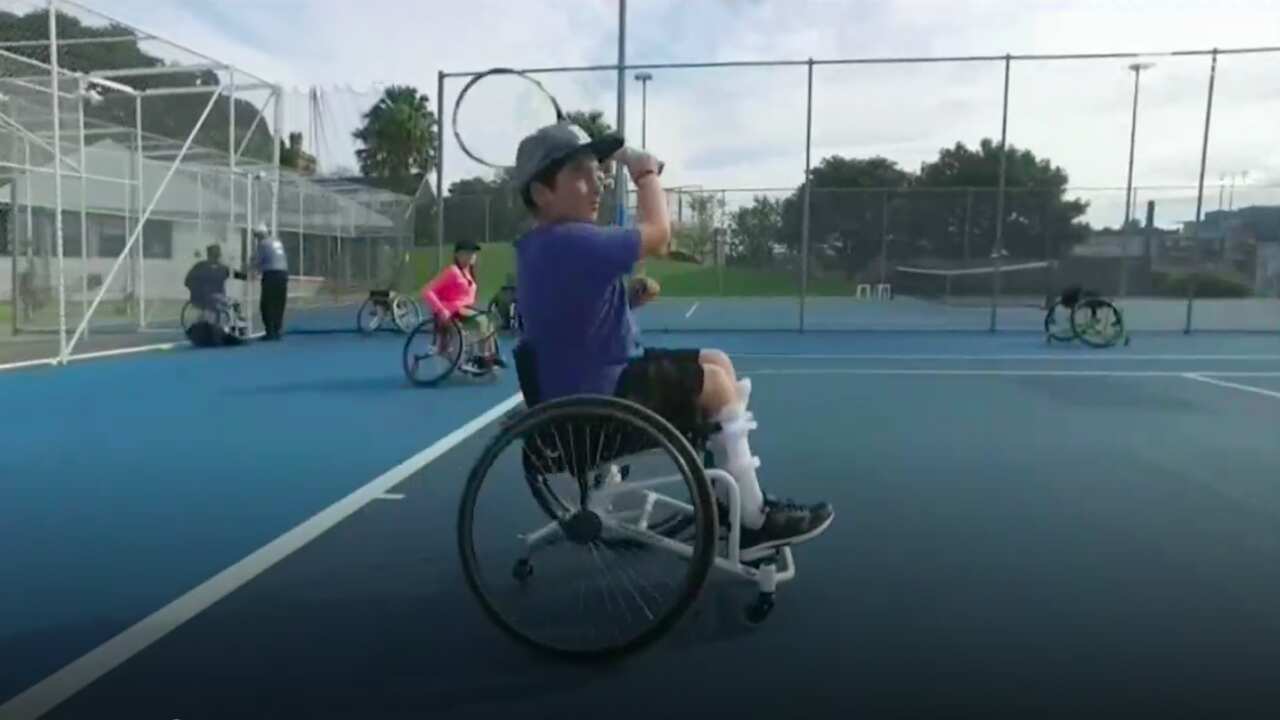Even those who have faced him on the court for years still find Les Lee’s improvised serve difficult to read. In fact, the 72-year-old says his unconventional serving style has baffled opponents right across Australia's regional tennis scene
“When you first meet them (they wonder) ‘what's this bloke going to do?’” Les, from Wodonga on the Victoria-NSW Border, tells SBS News.
“So they stand right in. My little bit of ego says ‘don't come too close’. So I slip it up and let ‘em have it!” Les lost his right hand in a butcher’s shop mincing machine as a 14-year-old apprentice.
Les lost his right hand in a butcher’s shop mincing machine as a 14-year-old apprentice.

Les Lee prepares to serve. Source: SBS News
“Couple of days before Christmas they had a big sale on snags and (business) was running a bit slow,” he said.
“So the boss came out, in his wisdom he took the guard off the machine, threw it out the back, and two hours later I was lying in hospital with no hand.”
He has since worked in a range of jobs, including a stint with the crew for Australian rock band The Easybeats. Tennis though, was a constant passion, and after the accident he was determined to return to the court.
He transformed from a right-handed player to a leftie. “I just wanted to play tennis again so I used to go out, get a racquet and a heap of tennis balls … and try and learn how to serve (again),” he says.
“I just wanted to play tennis again so I used to go out, get a racquet and a heap of tennis balls … and try and learn how to serve (again),” he says.

Les taught himself to play tennis with his left hand. Source: Supplied
“Once I felt comfortable with what I was doing, I'd get a few mates out and go and have a hit.”
He says tennis helped heal both his mind and body, and club mateship has been pivotal in staying strong. Wodonga Tennis Club even encouraged him to attempt a record for the world's longest continuous hit of tennis. Les was unsuccessful in his record attempt but says goals are important when you have a disability.
Les was unsuccessful in his record attempt but says goals are important when you have a disability.

Les in action. Source: SBS News
“Don’t look for sympathy; no-one's going to give it to you. You just got to prove to people you can get up, get going,” he says.
“It's easy to sit back and feel sorry (for yourself), but it's a lot better when you set a goal and you achieve it.”
Those who share the Wodonga court with Les say they have the utmost respect for him. Occasional opponent and friend Bill Traill says even the modern day tennis super-brats would benefit from exposure to Les.
“Learn about his life story and how it hasn't affected his interest in sport … how inspiring he is,” Bill said.


